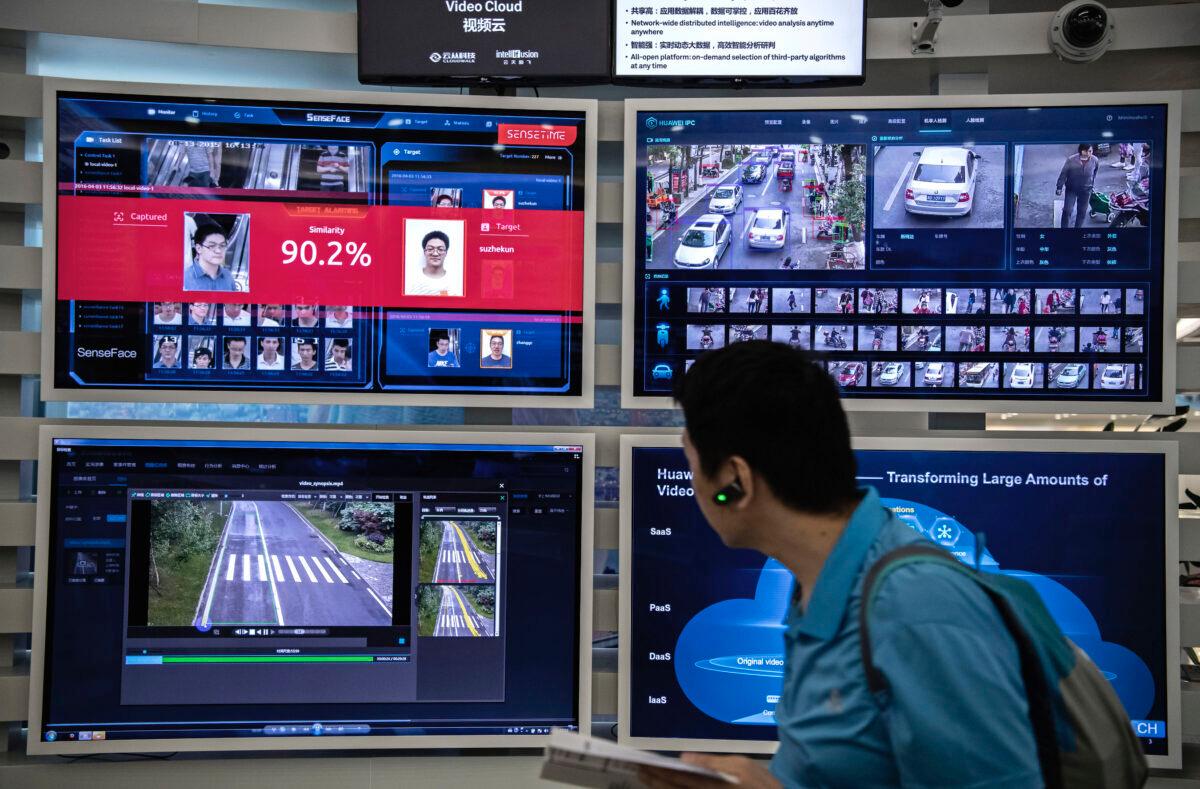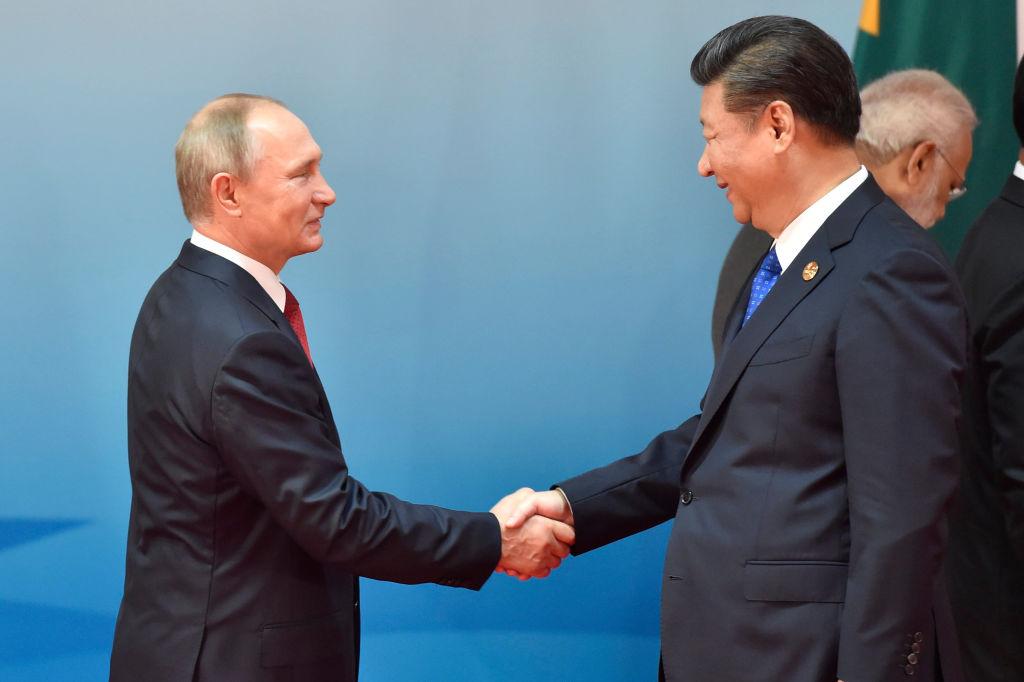Goldman Sachs, one of the world’s most successful banks, has apparently found legal loopholes so its clients can secretly fund genocide denial.
It’s despicable, but the big bucks in Manhattan high-rises don’t come free of guilt. There’s blood on those white shoe firms.
As Uyghurs see their population dwindle in China through concentration camp internment, forced labor factories, and subjection to rape, unwanted abortions, and birth control requirements, the Goldman Sachs Philanthropy Fund is funneling money to organizations that deny the genocide recognized by both the Biden and Trump administrations, according to a new investigative report.
Alexander Reid Ross and Courtney Dobson argue in New Lines Magazine, well known for its reporting on Islamic countries, that the genocide against Uyghurs and other Turkic Muslims in China is supported by propaganda funded through the Goldman Sachs fund. The authors describe the fund as “a donor-advised charity that conceals its funders from the public record, making it a convenient clearinghouse for moving dark money to politically sensitive or controversial organizations.”
The report, published on Jan. 18, reveals that “over the past five years almost $65 million has filtered through various entities connected with people who have defended the Chinese government and downplayed or denied documented human rights violations committed by Beijing against the Uyghur and Turkic Muslim minorities.”
The funding identified by New Lines is linked to an American tech magnate named Neville Roy Singham, who “has long held an ideological affinity with the Chinese Communist Party, dating to his youthful membership in the League of Revolutionary Black Workers, a Mao-influenced group based in Detroit, Michigan.”
Singham worked with China’s Huawei between 2001 and 2008 as a strategic technical consultant, according to a Chinese recruitment platform. During that period, according to Ross and Dobson, he “raved about China’s economic model.”

According to the New Lines investigation, Singham invested in three Chinese companies, including “Shanghai Luoweixing, with a registered capital contribution of $20 million; and Gondwana Foods, with one of $32.5 million. Singham is also listed as the legal representative of a third company, Shanghai Shinong Company Ltd., registered in January 2020.”
In fact, Beijing is a territorial aggressor that is forcing Washington to depart from its preferred course of trillions of dollars in trade and investment with China that America’s biggest corporations find so lucrative.
Democracy Now!’s Amy Goodman said on the show: “While the United States faces accusations of hoarding vaccines and blocking efforts to waive vaccine patent rights at the World Trade Organization, China has shipped millions of vaccine doses to nations in the Global South in what’s been described as a form of vaccine diplomacy. China has sent free samples of Sinovac’s vaccine to 53 countries and has exported it to 22 nations that have placed orders. Recipients include Brazil, Mexico, Peru, Colombia, Ecuador and Bolivia.”
Goodman did not mention that Sinovac vaccines are far less effective than Western vaccines, that there are strings attached to its donations, or that Chinese-made vaccines have sold at inflated prices relative to their effectiveness, likely due to Beijing’s corrupting influence.

A British private equity fund bought Thoughtworks in 2017 for what is thought to be hundreds of millions of dollars. Since then, “a web of organizations and individuals that promote apologetics for Beijing has emerged around Singham,” according to the authors. Yet he maintains a low profile, without significant social media activity or public appearances. Curious.
One of the Singham-linked organizations that has “an unmistakable bias in favor of the Chinese government,” according to New Lines, is the People’s Support Foundation, which was co-founded by Singham’s apparent wife, Jodie Evans, and is capitalized at over $160 million. Yet the organization has no website. Doubly curious.
Evans co-founded Code Pink, which does have a website. But it links to dismissive views on the Uyghurs. According to New Lines, “a video featuring Evans and British academic John Ross shows the latter characterizing the Uyghur genocide allegation as “farcical” and a “total lie.”
In 2020, Code Pink started a “China Is Not Our Enemy” campaign, “in which the organization advocates for the U.S. to adopt a thoroughly conciliatory approach toward China,” according to the authors.
A beneficiary of both the Goldman Sachs fund and the People’s Support Foundation, via another intermediary, the United Community Fund, is an organization called Tricontinental, which bills itself as an “Institute for Social Research.”
Tricontinental’s founder Vijay Prashad has focused on the Non-Aligned Movement and the BRICS countries (Brazil, Russia, India, China, and South Africa), both of which are heavily influenced and used by Beijing for its own political purposes of countering the United States and allies in international institutions and markets.

After Prashad’s 2017 resignation from his professorship in Hartford, Connecticut, he became a senior fellow at a think tank associated with China’s Renmin University. Ross is listed as a senior resident fellow at the institute.
“Prashad’s own corpus has lately tended toward defending the Chinese government with respect to one of its worst human rights abuses: the mass internment, reeducation, forced labor and sterilization campaigns waged in the northwest province Xinjiang against ethnic Uyghurs and other Turkic Muslim populations,” according to New Lines.
On the March 16 Democracy Now! episode, Prashad argues that “most of the U.S. corporate media have become stenographers of the U.S. State Department. You know, the credibility to have Mr. Mike Pompeo, former secretary of state, stand up there on behalf of the Muslims of China, after what the United States has done in Afghanistan, in Iraq—and, don’t forget, Pompeo used to head the CIA—I mean, it strains credibility.”
Prashad fails to mention the causes of the Iraq and Afghanistan wars, which include Saddam Hussein’s invasion of Kuwait, and the Taliban’s hosting of Osama bin Laden.
In an article published in April, Prashad presented the Uyghur genocide as U.S. propaganda meant to pave the way for offensive actions. “The U.S. government’s information warfare against China has produced the ‘fact’ that there is genocide in Xinjiang,” according to Prashad. “Once this has been established, it helps develop diplomatic and economic warfare.”
According to New Lines, “Such articles appear to be part of a broader strategy to cultivate media outlets where pro-China propaganda can filter through.”
Prashad has also posited a lack of evidence for the Uyghur genocide. “What’s the evidence?” He then answered his own question. “Well, there’s none, really.”
The New Lines authors write, “That Prashad’s denial of atrocities against the Uyghurs and other Turkic Muslim minorities should coincide with mounting evidence that implicates the Chinese government is particularly noteworthy because, until recently, his organization was on record lending credence to the fact that these abuses existed.”
In 2018, Tricontinental described “the detention of unknown numbers of China’s Uyghur minority—and the arrests of Marxist students” as “very grave,” according to the investigation, which posits that Prashad’s “about-face” could be due to his close association with Singham and his alleged funding of Tricontinental.
Tax filings, according to the investigation, indicate that Tricontinental received over $12 million from the Goldman Sachs fund. The Justice and Education Fund got over $15 million in 2019, and the People’s Forum got $12 million, according to the authors.
They claim that as recently as Sept. 18, the People’s Forum hosted an event, cosponsored by Code Pink and with a keynote by Prashad and the Qiao Collective, “a self-described Marxist group … whose Twitter account routinely promotes the Chinese government narrative on most any topic, including denying the Uyghur genocide.”
New Lines found that “Housed within The People’s Forum New York office is yet another media organization called Breakthrough News. Also pressing Uyghur genocide denial, this project is spearheaded by Rania Khalek, an apologist for Syrian dictator Bashar al-Assad, whose previous media ventures, Redfish and Soapbox, were both exposed by journalists as cutouts of Russian state-funded media.”
Demand better laws from our elected representatives that require public accountability and transparency of political and media donations, including those going to activist and “news” outlets that linked to dictators in China and Russia.





